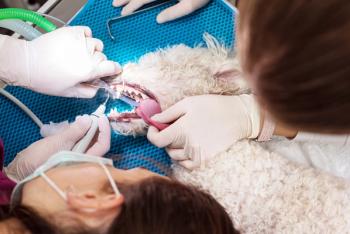
dvm360's Chief Veterinary Officer offers coronavirus advice and guidance
Dr. Adam Christman explains how to prevent the spread of COVID-19 at your practice and provides tips on what to do if your pet is feeling ill.
Do you have questions about COVID-19 and how it may affect your practice, patients and clients? You’re aren’t alone. Our Chief Veterinary Officer, Adam Christman, is here to help.
First, he wants to assure you that there is still no evidence to suggest that animals can contract or spread the disease, but what happens if pet parents get sick from the virus?
“What I recommend is identifying another person in your home to take care of that fur baby…. Wash your hands, wash their bowls, wash their bedding. It’s also good to have a pet kit prepared,” he says.
The kit should include two weeks’ worth of pet food, medications and copies of your pet's medical records. Also, make sure their microchip is current, Dr. Christman explains.
In the video below, Dr. Christman also offers tips on how to help prevent the spread of COVID-19 in your practice.
Newsletter
From exam room tips to practice management insights, get trusted veterinary news delivered straight to your inbox—subscribe to dvm360.




